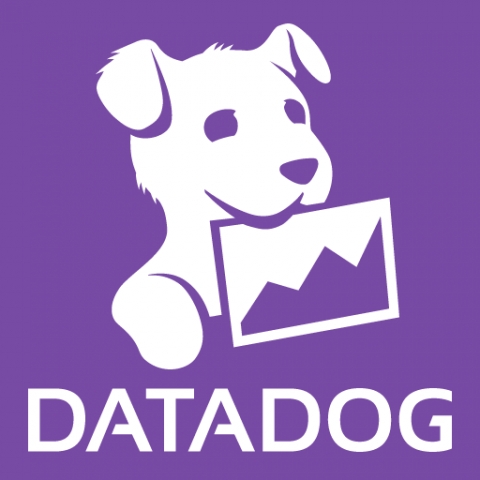KEY POINTS:
1. Airbnb brings disruptive agility to the multi-trillion dollar travel and tourism industry.
2. Datadog helps clients optimize application performance across private and public clouds.
Each quarter, retail investors get to see what the big money managers of Wall Street are buying and selling. Institutions with at least $100 million in assets under management are required to disclose their equity holdings by filing a Form 13F with the Securities and Exchange Commission.
What were the big dogs buying? James Simons of Renaissance Technologies added over 813,000 shares of Airbnb ( ABNB -0.32% ) to his hedge fund, bringing the total shares held to 3.5 million. And billionaire Chase Coleman III of Tiger Global Management bought 62,300 shares of Datadog ( DDOG -0.71% ) for his hedge fund, bringing the total shares held to 5.3 million.
1. Airbnb
Travel and tourism is one of the world's largest industries, accounting for over 10% of global economic output prior to the pandemic. Unfortunately, the coronavirus cut that percentage figure in half in 2020. Of course, the industry will recover in time, but it may look a little different than it has in the past. Specifically, remote work is now commonplace, which means more people have the flexibility to travel whenever and wherever they want, and Airbnb is leaning into that trend.
Its platform crowdsources lodgings from over 4 million hosts, making its inventory far more flexible than traditional hotels. In fact, Airbnb can onboard a new host in minutes, and without spending much money. By comparison, it takes months and costs millions to build many new hotel properties. That means if consumer travel preferences change, Airbnb can adapt far more quickly than rivals like Marriott. For instance, trips to small towns and rural destinations are more popular now than they were before the pandemic, and Airbnb saw a 20% increase in non-urban listings last year, evidencing the agility of its business model.
That competitive advantage helped Airbnb deliver a monster financial performance in 2021. Revenue skyrocketed 77% to $6 billion, and the company generated positive free cash flow of $2.2 billion, up from a loss of $667 million in the previous year. Better yet, gross booking volume jumped 96% to $46.9 billion, implying strong future sales growth.
Looking ahead, Airbnb has plenty of room to run. The company puts its addressable market at $3.4 trillion, a figure that includes short-term stays, long-term stays, and experiences. And management is making smart moves to execute on that opportunity. In 2021, Airbnb launched a host recruitment campaign, which included a simplified sign-up process and free top-to-bottom insurance for people who list properties on the platform, including $1 million in damage protection. In addition, Airbnb introduced flexible search parameters for dates and locations, helping guests plan the perfect trip when they are less concerned with where and when they travel.
Given Airbnb's agile business model and stellar execution, I'm not surprised to see Renaissance Technologies adding to its position. And with the stock trading at 17 times sales -- far cheaper than its two-year average of 23.6 times sales -- now looks like a good time to buy a few shares.
2. Datadog
Datadog specializes in IT observability. Its easy-to-deploy platform features over 500 built-in integrations, helping clients monitor performance across their ecosystems of applications, networks, and infrastructures. And because its software is cloud-agnostic -- meaning it can be deployed in private data centers and public clouds -- Datadog has achieved significant scale, capturing 10 trillion digital signals each day.
Its platform leans on artificial intelligence to analyze those data points and identify performance problems, surface actionable insights, and accelerate time to resolution. In doing so, Datadog helps its clients keep their digital systems performant and secure, preventing costly downtime and attacks. And each new customer brings more data to the platform, creating a network effect that enhances its ability to predict performance problems.
Digital transformation has made that value proposition increasingly relevant, and Datadog has executed very effectively on its land-and-expand growth strategy. In 2021, its customer base grew 32% to 18,800, and net retention stayed above 130%, meaning the average customer spent over 30% more. As a result, revenue rose 70% to $1 billion, and free cash flow soared 201% to $205.5 million.
Going forward, the company puts its addressable market at $53 billion by 2025, and the management team, led by co-founder and CEO Olivier Pomel, has already demonstrated its ability to grow the business. In 2012, Datadog started with infrastructure monitoring, but has since expanded its observability platform to include applications, networks, user experience, and security. And the company sees future opportunities in areas like developer workflow and real-time business intelligence.
Here's the bottom line: System outages can be costly, both in terms of lost revenue and broken consumer trust. To that end, Datadog creates value for its clients by optimizing the performance of applications and ensuring a good user experience. With a sales pitch like that, I'm not surprised to see Tiger Global adding to its position. Despite its pricey valuation of 49 times sales, this stock looks like a smart long-term investment.




Comments